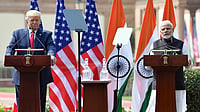The Ministry of Heavy Industries is reportedly planning to expedite the processing time for EV subsidy --- from 50 days to just five days, according to a report published by Business Standard. However, the government needs to address technical bottlenecks and streamline the verification steps to execute the plan.
The initiative supports the government’s broader target of making 30% of all vehicle sales electric by 2030. It also sets sector-specific goals — aiming for 80% electrification of two- and three-wheelers, 40% for buses, and 70% for commercial vehicles by the end of the decade.
Since 2014, more than 119 EV start-ups have secured $3.7 billion funds. These new-age companies have started listing making their mark on Indian stock exchanges, with Ola Electric listing last year and Ather Energy opened for public subscriptions on April 28.
Why Is Time Reduction Important?
The government is considering time reduction in the process of EV subsidy due to the presence of backlog in its disbursal. The report stated that the ministry aims to clear the backlog and ensure the timely disbursal of EV subsidies under the PM Electric Drive Revolution in Innovative Vehicle Enhancement (PM E-DRIVE) initiative.
Currently, there are 126,000 pending disbursal deals in the backlog. Over, the total number of claims stands at 893,000, including 109,000 specifically for electric two-wheelers. As per BS report, complications like face authentication have caused these delays. To be precise, the buyers’ Aadhaar photos and actual appearances look different, causing identity verification issues.
The government has disbursed a total of Rs 52.28 billion in EV subsidies as of December 2023, the ministry had earlier informed Lok Sabha.
What Is PM E-DRIVE Scheme?
The PM E-DRIVE Scheme, launched by the Ministry of Heavy Industries (MHI), aims to fast-track EV adoption and strengthen related infrastructure nationwide. With a financial outlay of Rs 10,900 crore, the scheme will be implemented from October 2024 to March 2026, replacing earlier initiatives such as FAME and EMPS-2024.
Under this scheme, the heavy industries ministry offers a subsidy of Rs 5,000 per kilowatt-hour (kWh) of battery capacity for e2Ws, which is capped at Rs 10,000 per vehicle for FY25. For FY26, this amount will be Rs 2,500 per kWh, capped at Rs 5,000 per vehicle. The target of selling e2Ws and e3Ws for FY25 was at 1.25 million. However, the actual sales number was 1.07 million units.






























